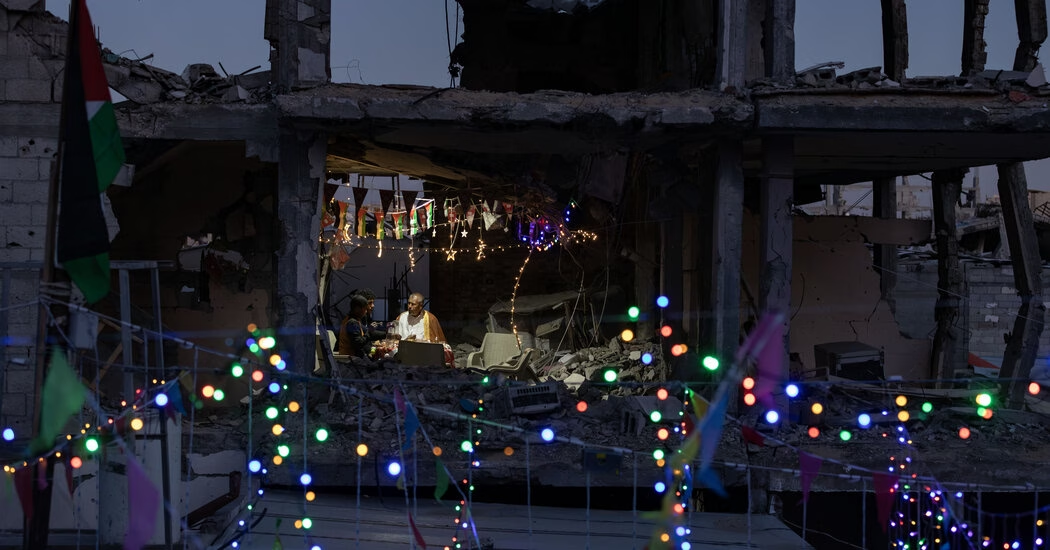Israel has proposed extending a temporary truce in Gaza for the Ramadan and Passover holidays, according to an announcement made by the prime minister’s office late on Saturday night as the initial phase of the truce was concluding.
This move by the Israeli government seems to be an attempt to clearly state its initial bargaining position as it continues to negotiate with Hamas to progress from the first phase of the truce to a more comprehensive second phase, as originally planned in the agreement.
The declaration by Israel came following a cabinet meeting chaired by Prime Minister Benjamin Netanyahu, which included the Israel’s defense minister, key defense officials, and the negotiation team, as reported by the prime minister’s office.
However, matters in Gaza remain uncertain. Earlier in the day, a Hamas spokesperson informed Al-Araby TV that the militant group had declined Israel’s suggested framework for extending the truce, as Reuters reported.
Both Israel and Hamas currently have reasons to avoid further fighting, at least for the present. Hamas would like to allow its forces to recover, while Israel is keen on bringing back the remaining hostages. Nonetheless, the possibility of a comprehensive deal appears to be distant.
Hamas is unlikely to accept Israel’s offer without additional talks, according to Aaron David Miller, a former Middle East analyst and negotiator from the State Department who is now a senior fellow at the Carnegie Endowment for International Peace. He stated that the proposal would “allow Israelis to get hostages back without making any reciprocal commitments.”
Under the Israeli proposal, attributed to the U.S. envoy to the region, Steve Witcoff, half of the remaining hostages in Gaza would be released to Israel on the first day of any agreement.
If a permanent truce was achieved by the end of the temporary extension, the rest of the hostages would then be released.
Considering Ramadan ends at the end of March and Passover continues until April 20, this proposal would give both Israel and Hamas approximately seven weeks to secure a comprehensive agreement.
Hamas will not return all of the hostages until it has guarantees that the Israelis will withdraw their forces and officially state an end to the war, Essay by Mr. Miller. “Nobody is going to give Hamas that guarantee,” he added.
Israel and Hamas have both accused each other of violating the agreed-upon deal, which was established in the final days of the Biden Administration. The first phase of the deal, which ended on March 1st, was a six-week truce negotiated to discuss an end to the war.
The agreement’s terms included trading Israeli hostages for Palestinian prisoners. Over the past weekend, Israel postponed the release of hundreds of prisoners as a form of protest against Hamas parading Israeli captives in public displays before they were handed over.
The negotiations that were intended to conclude this weekend between Hamas and Israel have not yet commenced in earnest, despite both parties sending representatives to Cairo, Egypt to discuss the next steps. Mr. Netanyahu stated that Israel is prepared to resume combat if Hamas does not disarm voluntarily.
Hamas has refrained from explicitly calling for a resumption of hostilities but has refused to lay down arms.
Source: https://www.nytimes.com/2025/03/01/world/middleeast/israel-cease-fire-proposal.html





